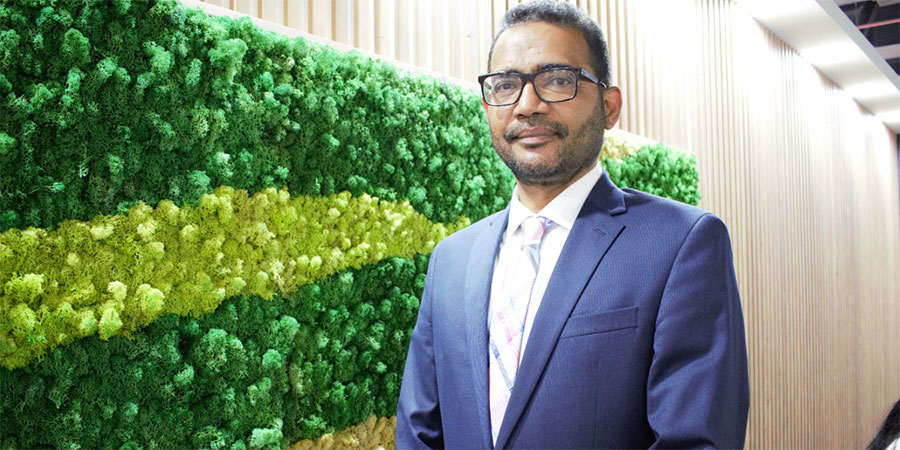At GITEX this year, Huawei was exhibiting a wide array of technologies, spanning across several industries and business groups.
Telecom Review managed to secure an exclusive interview with Huawei’s Mohammed Madkour, VP Marketing and Solutions of Wireless and Cloud Networks, to discuss the current climate of the industry and the state of 5G deployments across the region and the world.
Could you tell us about Huawei’s presence at GITEX this year?
Everybody is excited to be here in Dubai, attending the 40th version of GITEX. But this year, actually, I wanted to start by saying that we are honestly very excited about certain milestone that we have achieved this year. In fact, as of last week, the 5G subscriptions in GCC countries exceeded 1 million, no matter whether it's from mobile or from fixed wireless access; this is a very good inflection point.
We believe that in 2021, the 5G subscriptions here in the GCC will reach around 8 million people, which accounts for about 20%. This is going to be another key milestone which will reflect the popularity and the ubiquity of 5G in this region.
We have also extended our presence at GITEX. This year, we are not only showcasing the equipment part of our exhibit, but also focused on the industry applications. We focus on how w ecan enrich peoples’ lives here in the GCC and the Middle Eastern region in general such as how to make businesses more prosperous and society more productive. This will eventually make countries’ economies reach a different level. We are very excited to be here at GITEX, we are really showing the world that this is one of the most important regions for us at Huawei and we are ready to even collaborate more and innovate.
Despite the political tensions Huawei has faced this year, how has it managed to still stay ahead of the game on such a global scale?
This is a key question. First of all, it is very clear now that enhancing the total value of ownership for 5G, is no longer only a technical, commercial or social issue. Unfortunately, it's becoming a political issue. We are focusing on how to enhance and build the best 5G which will truly fulfil the 5G promise for the entire world. That being said, it is also very clear that while we have been facing a lot of baseless accusations in terms of cybersecurity, I think everyone knows that there really is no evidence of this being the case. What we do at Huawei is we focus on understanding our customers’ pain points and fulfil our commitment to them by strengthening our R&D capabilities even more so we could solve these issues. So far, I think that we have been really successful this year in delivering and even exceeding our targets with our customers. We have been at the forefront of innovation and R&D and deployments all over the world.
In a nutshell, we are very optimistic about the future of Huawei in the 5G and innovation space.
Following the pandemic, what sort of trends to you foresee for the near future of the global telecoms industry?
The pandemic is not the main reason for expansion, innovation or transformation because it is always happening and will continue to do so in the future. I would say that the pandemic showed that the telecom industry and cloud in particular are just scratching the surface when it comes to capability and Huawei’s ability to face any disaster and enrich applications in all industries. That being said, focusing on 5G specifically, we have already shown that it is not standing on the stage by itself. It is the synergy between different technologies and applications. For instance, 5G, AI, cloud and distributed computing also enrich industry applications overall.
The synergy between them is going to set the stage for an extraordinary year. We’re knocking the doors of 2021, isn’t that exciting?
I think that it is really exciting to know that the doors of 2021 hold more innovations.
At Huawei, we have seen that there is still a gap between the industry demand and the current capability of 5G. We know that 5G is big right now in terms of network size and deployment, as well as applications in general. We are now focusing on putting together a framework to evolve the capability of 5G and solve some of the issues.
5G is really going to change the world. It is going to solve issues for real time broadband communication, uplink centric broadband communication and also harmonize the communication and sensing when it comes to centimeter precision.
I believe that the capability of 5G will only get bigger and bigger and so will its impact on other industries. We will definitely see a lot of interesting use cases and applications for 5G in 2021 and we are all excited to unlock the doors of 2021.
